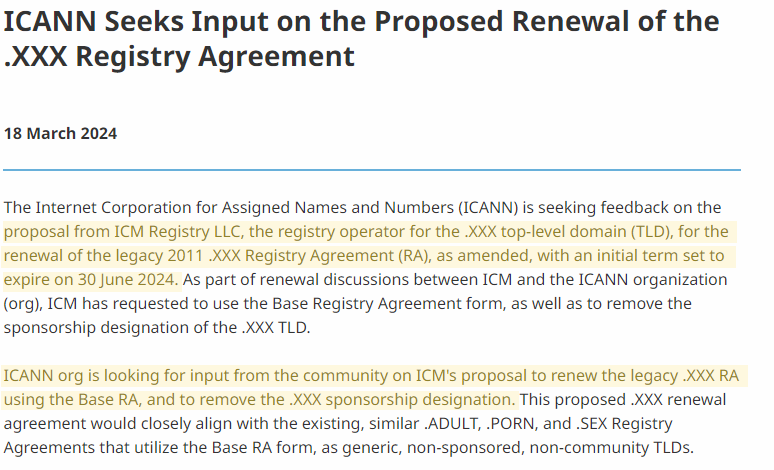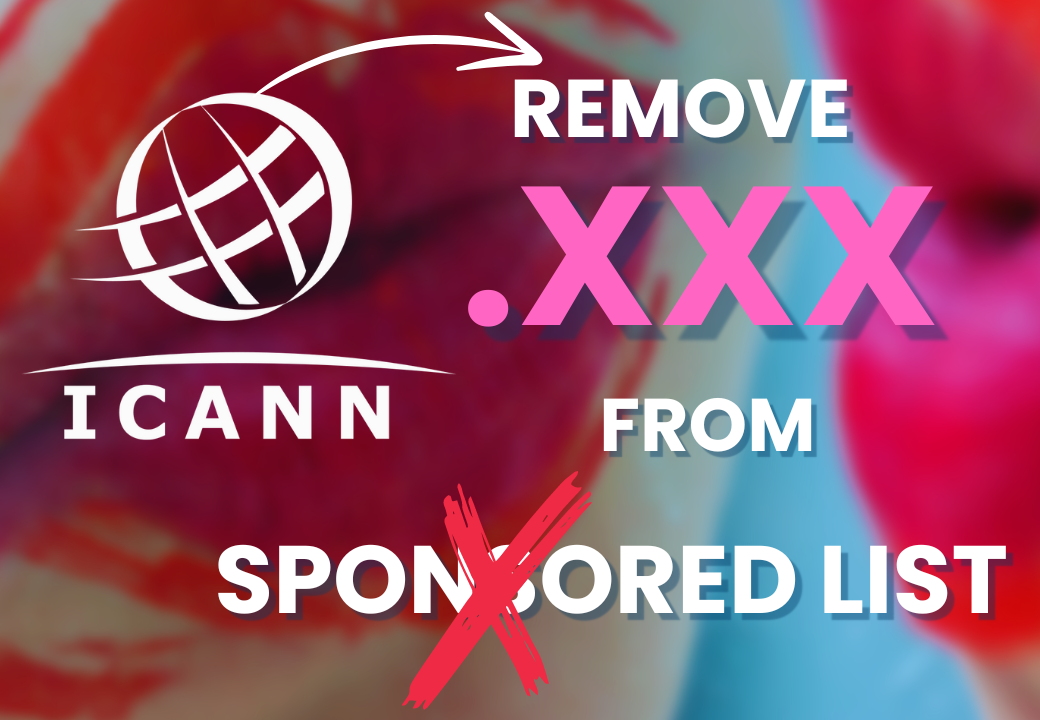ICANN has put forth what might become the next version of GoDaddy’s .xxx registry agreement, marking a departure from its current “sponsored” status. This move could significantly alter GoDaddy’s ICANN fees and implement the most stringent child-protection measures across any generic top-level domain (gTLD). However, it’s not all straightforward – ICANN has opened this proposed agreement for public commentary, signaling potential hurdles ahead.

Key highlights of the proposed agreement
- Removal of “Sponsored” Designation: The .xxx TLD may no longer be classified as “sponsored,” a label that previously required certain oversight by specific organizations.
- Stricter Child-Protection Measures: The proposal introduces robust Public Interest Commitments (PICs), including proactive measures against child sexual abuse material (CSAM).
- Changes to ICANN Fees: The new contract could alter GoDaddy’s financial obligations to ICANN, potentially saving the company significant sums annually.
Controversies and concerns
While the changes seem pragmatic on the surface, they’ve sparked at least one public objection. Critics argue that abandoning the “sponsored” model and relaxing certain oversight mechanisms could set a precarious precedent. Furthermore, the proposed contract has raised eyebrows over the potential for “material violations” of the existing agreement, according to some industry insiders.
The broader implications for the internet community
The .xxx TLD’s journey has always been fraught with controversy, from its initial approval to its operational challenges. This new chapter, if realized, could redefine the governance and oversight of not just .xxx but potentially other TLDs as well. It’s a testament to the evolving nature of internet regulation and the ongoing balancing act between oversight, freedom, and protection. Looking Ahead As the public comment period unfolds, the global internet community watches closely. The outcome of this proposal could influence not just the future of .xxx, but also the principles governing internet domains at large. It’s a pivotal moment that underscores the complex interplay between regulatory bodies, private enterprises, and the communities they serve.
Kamil Kołosowski
Author of this post.
